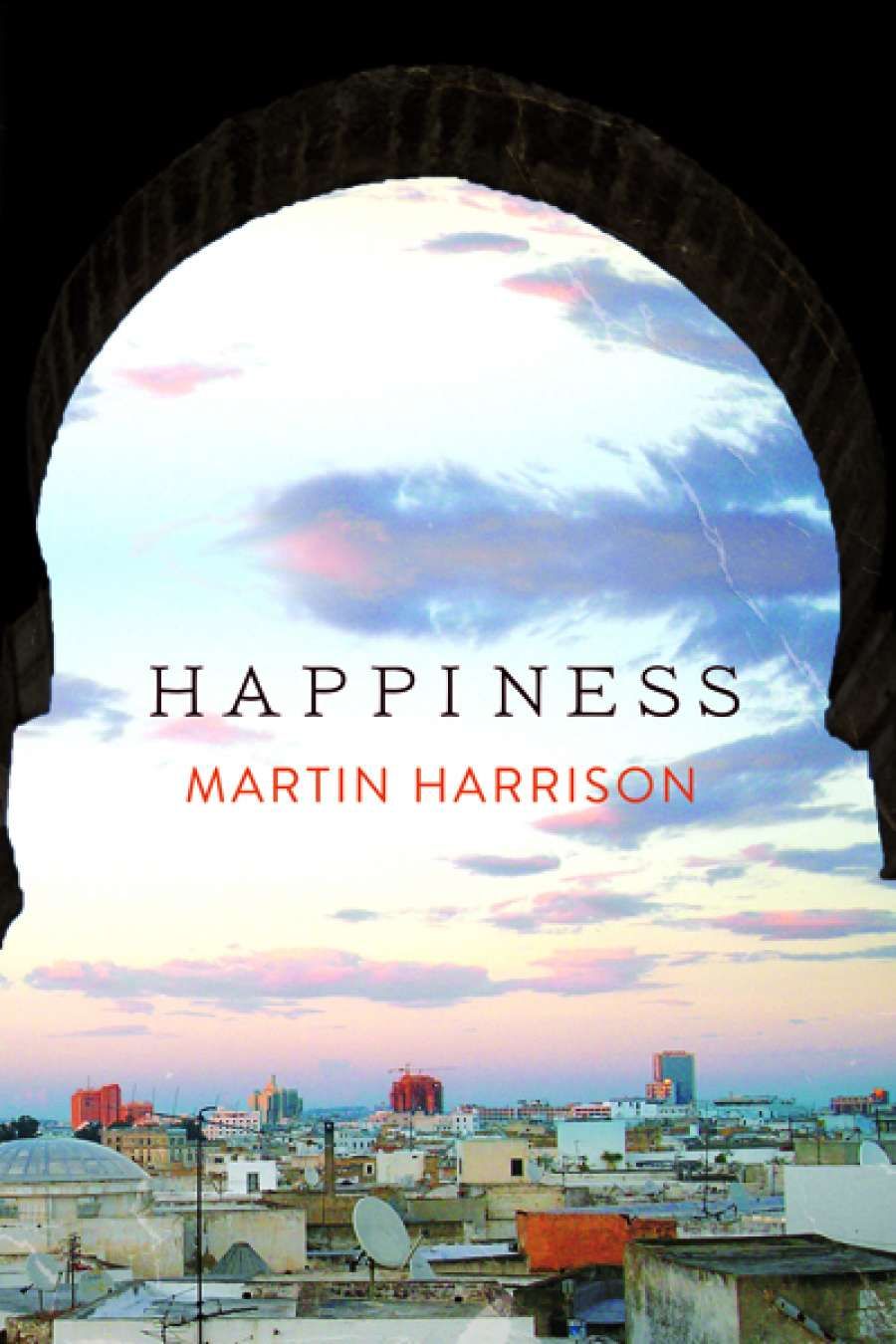
- Free Article: No
- Contents Category: Poetry
- Custom Article Title: Judith Beveridge reviews 'Happiness' by Martin Harrison
- Review Article: Yes
- Online Only: No
- Book 1 Title: Happiness
- Book 1 Biblio: UWA Publishing, $24.99 pb, 112 pp, 9781742586861
The poem proceeds to investigate how the mind and the senses are always catching up, that once something has been grasped or noticed it has changed into a new impression. 'And how will it end? This half-traced ecstasy at merely being here. / Could anything be heard other than the after mode / of how we got here, made it out?' Or this from part four of 'Two-Part Variations': 'We're in the world, we have no choice / in how its transience is mine and yours.'
Many polarities occur in the poetry: light and shadow, rain and summer's intense heat, sound and silence, distance and focus, rhythms of time and the quotidian. The perceptual depths in Harrison's poems are always a highlight. Things are looked at not merely in isolation, but in relation to each other, the small within the large, and the large against the small. Harrison draws out the multilayered, multidimensional flux of phenomena, often organising a poem around tensions of movement and stillness, or of trying to fix something from 'the back of the mind' (a favourite phrase reused from earlier poems) linking thought to what is going on in the physical world.
With change and flux as central themes in his poetry, Harrison has an extraordinary ability to harness his language in its service. His often long-breathed lines, conversational in nature, follow trajectories of thought and observation, coursing and changing, and also delivering leisurely cadences and rhythms. Many of these sweeping constructions avoid most or all punctuation, delighting in profluent music to carry the swell of emotion and thought, as in 'Aubade', a poem to his lover which builds through repetition and accumulation of detail into rhapsody, intensified by the sudden use of three final declarative sentences: 'Already I cannot live without you, cannot accept such emptiness. / The blue misty winter light withdraws from the mirrored sea. / At last I've woken up with you, at last the night was dark with fire.'
'The poems in this posthumous volume are rich, bountiful, full of the same ''worshipful attention'' ... that characterised his previous volumes'
Perhaps the highlight of the collection is the twenty-page 'Two for You', written in memory of Harrison's lover. A note explains that the poem 'is loosely based on the classical nuba form of traditional Tunisian Maloufi performance which combines both strict tempi and opportunities for extended improvisation for the singer and musician'. The poem uses shorter two-line stanzas to travel through memory, loss, landscape, the rhythms and perspectives of feeling and seeing which allow the outer world and the inner to dovetail. It is an excellent example of the way Harrison's poetry brings the mysterious into light, and how deftly he makes interiority tangible, often moving from comprehension into response, as phenomena become objects of thought, aspects of an immersion in the world that allow one to imagine transcendence or the sublime. This poem is from the last section of the book 'Elegies' – seven poems (we can conclude) for Bouheni. Taken as a whole, they are extraordinarily moving. The overriding sense of love and appreciation for the beloved prevents them falling into a maudlin, pitying mood and contributes to the sense of the great joy in living that the whole book conveys: 'Both of us hoping that / one day words and names // and the world's realness / would all line up // would just stay there // making it so apparent / that my memories of you // remain the clearest / thoughts of impulse, love, care'.
Happiness is a book of glories and riches. It highlights what an immense loss to Australian poetry his death in 2014 represented. Harrison was writing prolifically and at his intense peak, delighting in his ability to exult and to find the modes of language which enabled him to achieve such an impressive sensory and perceptual reach.


Comments powered by CComment